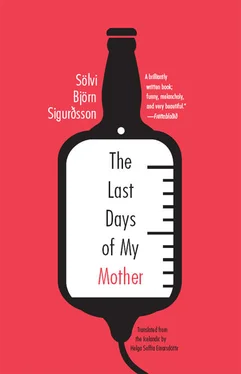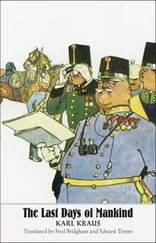The people out on the lawn had various opinions of Van Österich. Some loved him and thought it was terrible for the Netherlands to lose such a son. Others were more skeptical and some truly loathed him. What troubled most people was that he made no distinction between mental or physical pain when it came to the right of the individual to assisted suicide. Van Österich was not only an advocate of euthanasia as it was practiced in certain institutions, but was also a strong supporter of the idea that each human had the sole right to his/her life. In his opinion, suicide was a brave option out of the terrible abyss of depression.
“So get on with it, Van Österich! We’re tired of waiting!” Someone shouted, and then a red water balloon smashed against the philosopher’s chest, but he regained his composure in world-record time and carried on as if nothing had happened. The balloonist was grabbed by two strong men from the group of guests, and escorted off the property along with a few of his pals who were suspected of trying to cause more trouble.
“Isn’t this just typical for the way things are in society these days, Van Österich?” a photographer from De Telegraaf asked. He had caught the attack on film. “I’m not trying to justify this sort of behavior — but don’t you think that people are growing tired of this flirtation with death? What about those who are left behind? A friend of mine tried this.”
I couldn’t catch Van Österich’s answer because it was drowned out by exclamations about a lack of beer. Mother had crept up on me and was talking wildly about a drought in the hollow. She went dead silent when she looked out on the lawn.
“Euch,” she said. “Isn’t that the Ostrich idiot over there?”
I had expected her to become irritated by the philosopher’s presence. She’d heard that he was horrible. If his name came up in conversation she would always refer to him as the Ostrich, the Featherman, or even the Bird-Flu. She reveled in comments such as “his type like to stick their head in the sand, they should be plucking that bird, someone should clip his wings.” I ignored this — we hardly knew the man. Ever since Helena pointed out his website to me, it had been my main source of information on assisted suicide, my guide through the maze of euthanasia. Mother, of course, had no clue.
As we got closer to the crowd and blended in with the media people and the guests, Mother’s face reflected bitter disdain. The photographer from De Telegraaf seemed to feel the same and challenged the philosopher.
“I’ll answer any comment,” Van Österich said. “Take on any opposition against every person’s right to suicide!”
To stop Mother from engaging in combat I offered myself up and started recounting the story of a school friend who had lived in constant fear of his father’s self-destructive nature. His father gave weight to his threats of suicide by making actions speak for themselves: he bought arsenic, spent a fortune on rope, and carried the toaster into the bathroom when he took a bath, all to heighten the sensation of proximity to death. As a result my friend became a nervous wreck and refused to leave the house. I asked Van Österich if he didn’t think it unfair and cruel for children to live in such fear.
“The idea is one thing and the implementation another,” he answered. “People should not threaten suicide to manipulate others, especially not children.”
“Yet that’s how it is now with my friend,” the photographer interjected and moved closer to me as if we were a team. “It’s not easy dealing with people who are dead-set on killing themselves.”
I tried to move away from the photographer, but to no avail. Van Österich spread out his arms and spoke to the two of us. “Family and friendship, if that sort of communication really exists without hypocrisy, must always be second to the individual’s right to be or not to be. We can argue that a parent has duties toward a child, but to claim that this parent must live with suffering to spare the offspring discomfort is absurd.”
“You call it discomfort for a child to lose its father?” a different man exclaimed in shock.
“Or for a friend to live in constant fear of the worst?” the photographer added. “It’s hell.”
“Really?” Van Österich asked. “Is that really the worst thing that could happen to you? That your friend decides to make good on his threats one day? Nobody decides to take his own life for revenge. These people are desperate. They live in constant darkness. Constant suffering. A true friend would not wish that kind of life for anyone.”
“Go to Switzerland, Van Österich, we don’t need people with your ideas in the Netherlands!” the shocked man shouted. He was wearing a T-shirt that read “Suicide is Sin.” Van Österich said he had no need to go to Switzerland, there were plenty of people who agreed with him there. The photographer shook his fist and said that the philosopher obviously never had any friends. It was getting too heated for my taste and I wanted to get out of there. The intent had been to draw attention to the issue, but the event was on the verge of turning violent. The photographer wanted the philosopher to give a straight answer regarding his stance toward the dilemma of my school friend. Did he really believe that the father’s suicide was justifiable?
“We have institutions that take care of orphaned children,” Van Österich answered. “Support groups and adoption agencies. A person who can’t get past their suffering, however, has no shelter except death.”
“Strange how such a high-flyer can be such a dud,” Mother whispered and leaned against me with a grimace. “Everything he says sounds like a recording.”
“At least he’s fighting in our corner,” I said. “Defending what we’d do if things took a serious turn for the worse.”
“Luckily we don’t seem to have to worry about that, Trooper. And I have no wish to say good-bye to my friends here for some Swiss suicide party. I’ve got the Ukrain and that will help me get better. Come talk to Tim. He’s packing a bong.”
When we returned to the hollow, more people from the center had joined Tim. John Bomm and Harold Queenstreet were frail looking Americans who didn’t seem to let their impending death upset their plans to party. Next to them a young Dutch guy with leukemia hunched over his crutches, and then there were two Italian women, Tia and Maria, who were never seen without the other. I had the feeling that Maria was ill and that Tia was there to support her. If I was mistaken, then I was the only healthy person around. The freak who hung out with terminally ill people to get high.
“Suck on this, Trooper, and then pass it on.”
I passed the bong and melted into the endless dimensions of space while the conversation around me turned to chitchat.
“Do you have any idea how the Ostrich is going to kill himself?” Mother asked. “Poison? Hypothermia? The good old gas stove?”
“What lively conversation.” The voice came from the smiling face of Arthur van Österich, who had managed to escape the siege on the lawn. He stood awkwardly in the silence his presence had on the group, as if he were waiting for an invitation and didn’t feel like he could join the group freely. I understood this had to be how all celebrities felt. Normal people feel their hearts flutter a bit and get an incomprehensible thrill from proximity to fame, the moment when worries about money, relationships, and child rearing evaporate, but as soon as the stars return to the foundation of their lives, they stand alone on the outside, not knowing what to do. Van Österich probably knew that he was not in high esteem in Lowland, even though he was a patient on paper. His claims that Libertas was irresponsible in its policy on euthanasia had not gained him much popularity at the center. He was so groomed and intelligent that he seemed almost clinical, and I suddenly realized that this had probably been his lot since puberty, to be the core of every discussion, while he himself stood on the outside of life. The deep curve of his right eyebrow suggested that he had lived his days with a sneer, a substitute for some distant disappointment that suffocated and overshadowed everything he had achieved later in life.
Читать дальше












